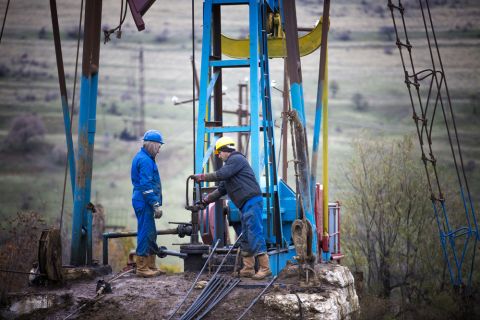Republican Debbie Riddle, State Representative of Texas District 15, has issued a press release stating the Deepwater Horizon incident “has triggered an economic domino effect that could spell disaster for the Houston area.” According to Riddle, “It doesn’t matter if a drop of oil ever hits Texas shores. The effects of fishing bans and drilling moratoriums combined with the environmental fallout are going to cost Texas millions of dollars and thousands of jobs unless we get this situation under control immediately.” As chairwoman of the National Foundation for Women Legislators (NFWL), Riddle visited on June 11 with US Coast Guard officials at the White House before going to Louisiana to meet with BP executives, members of the Louisiana legislature, and fishermen to discuss containment strategies and the potential impact of the disaster on Texas businesses. The primary point of Riddle’s observations is that the repercussions of the spill and the subsequent legislation will be significant. “When shrimpers can’t catch it, then our Houston-area businessmen can’t process it, and our restaurants and grocery stores can’t sell it,” Riddle said. “That means we lose businesses and jobs, and our state economy loses millions more dollars in revenue, and that’s only one of many industries that could be impacted.” Meanwhile, in a press release put out by the Domestic Energy Producers Alliance (DEPA), Mike Cantrell, president of the 1,200-member DEPA, took issue with being tarred with the same brush as BP. Cantrell urged Congress to take strong steps to protect America’s shores against events like the Deepwater Horizon disaster, but cautioned Congress not to over-politicize the event into a vendetta against independent oil and natural gas producers by pushing for punitive laws or regulations that would cause energy prices to spike. “We are not BP,” Cantrell said. “Let’s not throw small, independent oil and gas producers under the bus to punish BP.” Although on the surface, Cantrell’s argument is about taxes, it is also about employment. “Taxing the energy sector’s small business people, who drill 90-plus percent of onshore wells, only costs jobs and raises the price of energy to the American consumer to an unacceptable level, especially in such tough economic times,” he said. His advice? “Let’s focus on the actual problem and not on off-target political agendas.” While Riddle and Cantrell play to a large audience, others are working in a smaller arena toward the same objective. Paul Howes, president and CEO of Newpark Resources, sent a message to his employees (many of whom have circulated it outside the company), recruiting their efforts to petition the US government to give serious consideration to the ramifications of the recently announced deepwater drilling moratorium in the Gulf of Mexico. The message says: “You are all aware of the moratorium imposed on drilling in the Gulf of Mexico. The impact on our customers, this industry, and our country will be profound. Newpark has joined with the American Petroleum Institute, its members and partners to make sure that the voices of those employed in this industry can be heard in Washington. If you are interested in reading more, and possibly sending a message to Ken Salazar, Secretary of the Interior, on the impact of the drilling moratorium, please use the following link to the co-branded site of EnergyNation and Newpark Resources.” In the interest of giving you the opportunity to see the site and send a letter of your own, I’m providing the link here.
Recommended Reading
E&P BW Energy Undergoes ‘Technical’ Ownership Restructuring
2024-05-08 - The restructuring will not involve any change to the ultimate control of BW Energy as the shares currently held by BW Group will be sold to BW Energy Holdings.
Wood Mackenzie Appoints Jason Liu as CEO
2024-05-07 - Liu replaces former CEO Mark Brinin, who is departing to pursue other opportunities, Wood Mackenzie said.
Hess Midstream Subsidiary Plans Private Offering of Senior Notes
2024-05-08 - The proposed issuance is not expected to have a meaningful impact on Hess Midstream’s leverage and credit profile, according to Fitch Ratings.
Exxon Appoints Maria Jelescu Dreyfus to Board
2024-05-08 - Dreyfus is CEO and founder of Ardinall Investment Management, a sustainable investment firm, and currently serves on the board of Cadiz Inc. and Canada-based pension fund CDPQ.
OFS Sector Loses Jobs, but Trade Org Says Growth Potential Remains
2024-05-08 - According to analysis by the Energy Workforce & Technology Council, the OFS job market may still have potential for growth despite a slight decrease in the sector in April.





